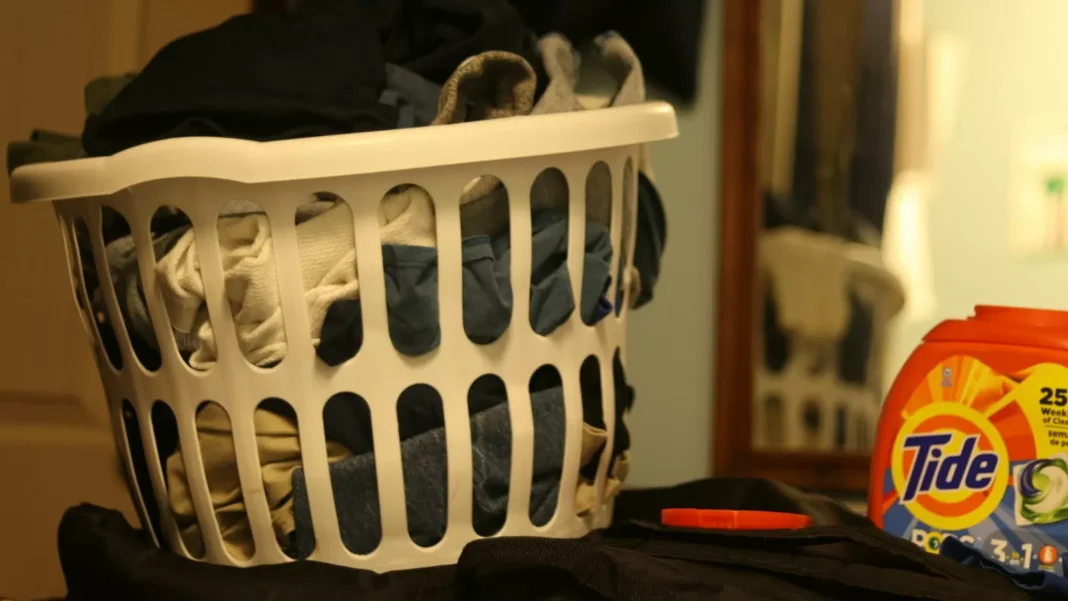Overflowing Laundry Basket: How to Handle Gender Roles and Involving Parents in Relationships
In the past few decades, attitudes towards gender roles have shifted significantly. However, a recent British Social Attitudes Survey suggests that our actions may not have caught up with our changing beliefs. While only 9% of respondents agreed with the statement “a man’s job is to earn money and a woman’s to look after the home,” a staggering 65% of women admitted to doing more than their fair share of housework.
One Reddit user, u/avabeast, shared her own experience with this issue in a recent post on r/AITAH (Am I The Asshole Here). She wrote, “We both work full-time, but I also cook, clean, do laundry, grocery shop, handle bills, take care of our cat.” This post sparked a discussion about gender roles and the division of household responsibilities.
However, what caught the attention of many readers was a comment from her partner’s mother. The mother asked, “So, what do you actually do around the house? [Boyfriend’s name] says you’re not really the domestic type.” This comment not only caught the poster off guard but also caused her to stop doing all the household chores. This situation raises an important question: how do we handle our partner involving their parents in our relationship?
The poster has been with her partner for three years and they have been living together for one. She admits to doing all the housework while her partner only occasionally helps out with small tasks. When she brought up the issue with her partner, he promised to do more but never followed through. This lack of effort from her partner led to her going on a “laundry strike.”
During a dinner with her partner’s family, his mother made the comment that sparked the whole situation. The poster was taken aback and responded, “Well, if by ‘not domestic’ you mean I do everything, then sure.” Her partner later apologized, claiming that the comment was meant as a joke. However, the damage was already done, and the poster decided to stop doing all the household chores.
To understand the impact of this situation, we spoke to Dr. Mosun, a consultant psychiatrist at Cassiobury Court. She explains that the poster’s reaction and feelings of hurt are completely understandable. “In adult romantic relationships, introducing a parent as a form of backup (especially in moments of conflict) is generally very unhelpful and can be emotionally undermining for the partner on the receiving end,” she says.
This type of behavior can lead to what is known as triangulation, where a third party is brought into a dynamic that should be managed between the couple themselves. Dr. Mosun emphasizes the importance of healthy boundaries in adult relationships. “If your partner brings in a parent to complain about you, especially without your knowledge or consent, it’s not just about the immediate issue, it’s about communication, respect, and emotional safety,” she says.
She advises setting boundaries by expressing that you would prefer to discuss issues between yourselves first. Additionally, Dr. Mosun points out that arguments about household chores often mask deeper issues in a relationship, such as feeling undervalued or emotionally unsupported. If this becomes a pattern, it may be time to seek help from a relationship therapist to better understand the emotional context behind it.
Involving parents in a relationship can be a tricky situation, especially when it comes to household responsibilities. It is essential to communicate openly and set boundaries to maintain a healthy and respectful relationship. As for the issue of gender roles, it is crucial to have open and honest discussions with your partner about expectations and division of labor. Remember, it is not about who does what, but about finding a balance that works for both partners.
In conclusion, the overflowing laundry basket may seem like a small issue, but it highlights larger problems in a relationship. It is essential to address these issues and communicate effectively to maintain a healthy and happy partnership. Let’s work towards breaking free from traditional gender roles and creating equal partnerships.



